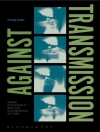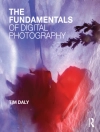This e-book is part of a twelve-volume series documenting the history of German film from its beginnings in 1895 to the present day using the collection holdings of the Deutsche Kinemathek. Each volume in e PUB format focuses on a decade and offers a concise overview of the cinematic masterpieces and milestones of that era, highlights famous films and films to be rediscovered, and pays tribute to the cinema, its audience and the creative minds behind the diversity of German film.
The complete work, which comprises over 2, 700 objects from all areas of the collection and spans 130 years, is also available as a printed book and as a PDF in German and English.
The DEUTSCHE KINEMATHEK is one of the world’s leading institutions for the collection, preservation, and presentation of audio-visual heritage. Hundreds of thousands of objects are permanently preserved in its archives and are available for research into film and television history. In addition to scripts, photos, posters, costumes and designs, the collection also includes film equipment. The Kinemathek curates film series and exhibitions and restores and digitizes films. Its diverse activities, including installations, publications, educational formats, and conferences, encourage visitors to discover the world of moving images.
Tabella dei contenuti
Cover
Contents
Introduction
The Scandal at the Berlinale about o.k. by Michael Verhoeven
The Creation of Communal Cinemas
Everyday Working Life in DEFA Films of the 1970s
The Battle of the Sexes in German Feature Films
The Report Films in West German Cinema
People with Disabilities in Werner Herzog’s Early Films
Ingemo Engström: Research into Flight and Resistance
Film Stars (III/VI) (FRG and GDR)
Laurens Straub and the Filmverlag der Autoren
Cabaret: Dance on the Volcano
Class Clown and Teacher Films
Rosa von Praunheim’s Breakthrough Becomes a Social Awakening
The New Heimatfilm: Volker Vogeler’s Jaider – der einsame Jäger and Reinhard Hauff’s Mathias Kneiẞl
West German Labor Disputes in Film
Between Individual Longing and Socialist Fulfillment of Duty: Der Dritte and Die Schlüssel
Two Hitler Films: Alienation Technique versus Psychologism
Two World Stars: Marlene Dietrich and David Bowie
Artur Brauner’s Films against Forgetting
The VW Beetle as a Movie Star
The 1973 Women’s Film Seminar and the Feminist Film Movement
‘Wenn ein Mensch lebt’: Die Legende von Paul und Paula
Migration Themes in the Films of Rainer Werner Fassbinder and Helma Sanders-Brahms
Film Adaptations of Effi Briest
The German Autumn in Film
A New Regional Film from Hamburg: Hark Bohm’s Nordsee ist Mordsee
Jakob der Lügner by Frank Beyer and Jurek Becker
Posters from the 1970s: Films from the FRG Shown in the GDR
Posters from the 1970s: Films from the GDR Shown in the FRG
German Road Movies
Ingmar Bergman in Munich
Social Studies in the Provinces: Paule Pauländer and Das Brot des Bäckers
Rebellion and Reappraisal: Theodor Kotulla and the Traces of History in the Present
Helke Sander and Elfi Mikesch: Two Views of West Berlin in the 1970s
Documentaries and Feature Films by Christian Rischert
An International Success: Die Blechtrommel by Volker Schlöndorff
Escape from Germany: Peter Lilienthal’s David
DEFA Children’s Films
Film Artists against All Conventions: Helmut Herbst and Vlado Kristl












